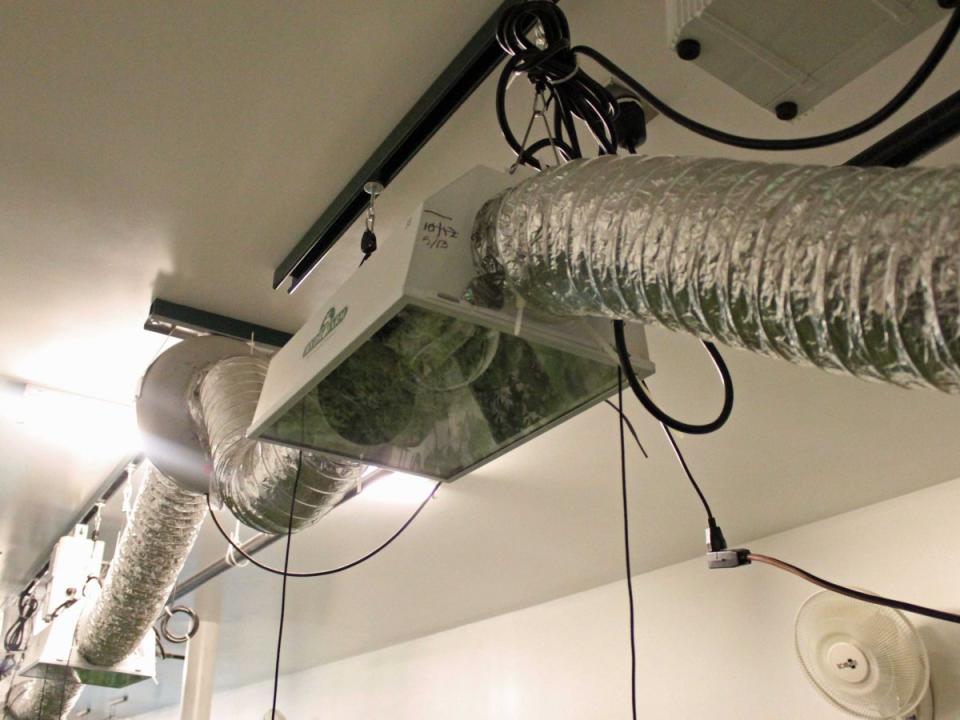THE $600 MILLION QUESTION: How Is Marijuana Legalization Going In Colorado?

Walter Hickey / BI
Last November, the citizens of Colorado voted for Amendment 64, which legalized marijuana.
However, that was only the beginning.
You can't just say "marijuana is legal," and then expect things to sort themselves out.
Even right now, lawyers, advocates, and veterans of the Amendment 64 campaign are clocking 20-hour days gearing up the state of Colorado for legalization.
The activists who coordinated the passage of the amendment last fall have spent the last year putting out fires and doing everything necessary to make the Colorado market a beacon for the country.
Here's what they're up against.
Defending the vote
November's referendum legalized marijuana, but it required the state legislature to set rules governing its sale. It also said that voters would have to come back to the polls this November to decide how marijuana will be taxed. As a result, retail sales of marijuana won't be legal until January 2014.

Mike Nudelman / BI
But last year, opponents of legalization in Colorado's State Senate wanted to insert a poison pill that would make this November's vote about the entire legalization rather than strictly taxes.
"In 64 it was written that the tax question would go to the voters via referendum," said Art Way, the Senior Drug Policy Manager for the Drug Policy Alliance in Colorado.
"So they tried to place a question on the referendum that says 'well if this isn't funded, does that mean that 64 is null and void?'"
The goal was to put the question of legalization back on the ballot, which would give anti-legalization forces an opportunity to effectively undo Amendment 64.
"There were some legal issues there, it really didn't fly constitutionally to try something like that." said Way. "So it died pretty quick. It died like the day after."
With the threat diminished, the architects of marijuana legalization had to set out building the framework for a legal marijuana market in Colorado.

Walter Hickey / BI
The first step to meet this timeline was to get the state legislature to pass regulations that could make the market the activists wanted.
Christian Sederberg — a partner of the marijuana law firm Vicente Sederberg LLC — was the point man for this lobbying effort, leading several lobbyists and orchestrating the passage of six bills, including three that set regulatory details and two that set taxes.
This was a big win for weed.
"We pass the first state-wide ballot initiative — constitutional amendment — legalizing marijuana for adults," said Sederberg. "And then we also just passed — for the first time ever through a state legislature — bills regulating the sale of marijuana to adults in stores."
The legal framework for post-legalization in Colorado will not look much different from medical marijuana in Colorado. And a sophisticated medical marijuana market has sprouted over the last four years in the state.
"T here's, medical marijuana stores, there's grows, there's kitchens, laboratories," said Brian Vicente, the other partner in Vicente-Sederberg, the co-author of Amendment 64, and the individual widely considered to be the most plugged-in marijuana policy expert in Colorado. The legal market will have the same four types of licensed businesses.
The end goal of marijuana legalization in Colorado
The goal is to make a stable market, more or less like the market for any other consumer product. In fact, marijuana is one of the few industries begging for comprehensive regulation.

Walter Hickey / BI
When other states consider a legal, regulated market, activists hope they can look to Colorado as a successful framework. This means sacrificing short-term gains for a long-term victory.
Here's an example:
Colorado wants to control the amount of marijuana businesses can grow. Too much, and it starts moving across state lines. That would be illegal, would undermine the legitimacy of Colorado's market, and would attract undesired attention from federal drug authorities.
Under the medical regime, Sederberg explained, production caps for individual groweries are set by the number of patients registered with each company. For each patient attached to a dispensary, that dispensary can grow six plants.
So when marijuana becomes legal — and the six plants per patient cap is removed — how can the Colorado Department of Revenue ascertain the amount of product that moves out of production facilities and be sure that it is in line with those producers' sales within Colorado?

Walter Hickey / BI
A marijuana grow lamp
They need a strategy other than a plant cap, because different producers get widely varied amounts of product per plant.
You can give ten different growers the same number of plants, and at the end of six months they'll have a wide range of production yields.
That's because production of marijuana isn't a function of the number of plants you have, it's a function of the number of lights you have, as well as environmental factors.
So if you're going to try to control production, why not use the electric bill?
"Because if we use the electrical bill," Sederberg explained, "you have a thousand watt sodium halide or whatever they are thousand watt lights. But there are now LED lights that use less power, so if you just looked at the power bill that still might not be the best thing. Plus, some people cultivate outdoors."
It's another issue that's going to have to be worked out before the end of the year. But so far, the industry and regulators are working together productively out of a mutual desire to avoid having Colorado become a center of the illegal marijuana trade.

Art Way, DPA
One last campaign
Besides the regs, the activist community is also gearing up for November's referendum. It's widely expected to pass by a smashing margin.
"T he polling is great and it shows that 70% of people who support it will probably vote for the tax," said DPA's Art Way.
"T here are questions right now as to what type of campaign is needed. With most of the activists, many of the implementing legislators, even the governor's office agree that some type of campaign is needed to get the proper message out there."

Walter Hickey / BI
Brian Vicente
The big picture
Moreover, there's also the matter of individual localities adopting the laws.
"T he way we wrote the law ... it specifically said local communities can control," said Vicente.
As a result, one last step of the process is ensuring that a critical mass of localities allow the implementation so that the state revenue goals are met.
So how is legalization really going in Colorado?
Colorado remains the first state in the U.S. to try to make this transition happen. There will be challenges in the legislative rollout.
With six months to go, the entire Colorado marijuana industry is working hard to get the market they feel can succeed in place. By and large they've been remarkably successful so far, and there's no reason to believe that moving forward, the transition will be anything but.
More From Business Insider

